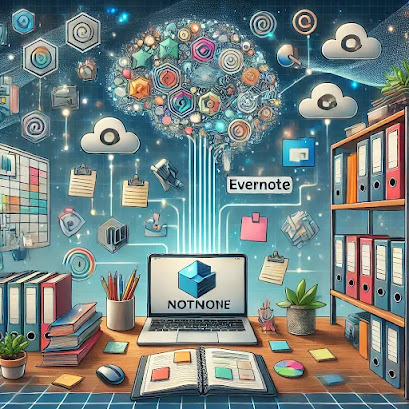Best Storage Solutions for Organizing Research Materials for ADHD Individuals
Best Storage Solutions for Organizing Research Materials for ADHD Individuals
People with ADHD often experience difficulties with organizing and retaining research materials due to challenges with attention, memory, and executive functioning. To effectively manage research, they need structured yet flexible storage solutions that are easy to navigate and reduce overwhelm. The right combination of digital, physical, and hybrid organization methods can make research more manageable and accessible.
Digital Storage Solutions
Digital tools are particularly useful for ADHD individuals because they offer searchability, automation, and visual organization. Several applications cater to different organizational needs:
- Notion – A highly versatile tool that enables users to create structured databases, link related research, and incorporate visuals for better engagement.
- Evernote – Great for saving notes, webpages, and research documents. It offers tags and notebooks for organization, as well as a powerful search function.
- Google Keep – A simple and visual note-taking tool that allows users to capture quick thoughts and organize them into lists.
- OneNote – Designed like a digital notebook, OneNote is excellent for people who prefer handwritten notes, audio recordings, and categorized sections.
- Zotero – A perfect tool for academic research, it automatically organizes references and citations in a structured format.
- Pocket – Allows users to save articles, PDFs, and webpages for later reading, ensuring research materials are easily accessible.
These digital tools help ADHD individuals maintain an organized, searchable system while reducing clutter and distractions.
Physical Storage Solutions
Some individuals with ADHD prefer physical materials over digital ones. However, without a proper system, papers can easily become disorganized. The following solutions can help:
- Color-coded binders and folders – Assigning different colors to different topics makes research materials visually distinct and easy to locate.
- Accordion folders with labels – These folders provide a single space to store research papers while keeping them categorized.
- Bullet journals and planners – Writing research summaries and key insights in a structured way can improve retention and accessibility.
- Sticky notes and index cards – These tools help with brainstorming and breaking down large topics into digestible pieces.
Physical storage solutions work best when combined with consistent labeling and categorization to prevent information from getting lost.
Hybrid Storage Systems
For those who want the best of both worlds, hybrid systems allow for a seamless transition between physical and digital research organization:
- Scannable (by Evernote) – Converts handwritten notes into digital files that can be stored and organized in Evernote or other cloud storage systems.
- Rocketbook – A reusable notebook that syncs with cloud storage services, allowing users to take notes physically and upload them digitally.
- Trello – A visual project management tool that helps users organize research using boards and lists.
These solutions bridge the gap between physical and digital organization, ensuring that research materials remain accessible across different formats.
ADHD-Friendly Organization Tips
Regardless of the storage system used, implementing a few key organization strategies can significantly enhance productivity:
- Use fewer but clearer categories – Overcomplicating research folders or tags can be overwhelming; simplicity is key.
- Set up a "quick capture" system – Having a designated place to store research materials before organizing them later helps prevent clutter.
- Schedule regular review sessions – Taking time each week to review and reorganize research materials keeps the system functional.
- Utilize voice notes – Recording thoughts instead of writing them down can make capturing research ideas faster and more efficient.
Conclusion
ADHD individuals benefit from a structured yet flexible approach to organizing research materials. Digital tools like Notion, Evernote, and Zotero provide searchability and automation, while physical solutions like binders and index cards offer a tactile approach. Hybrid systems such as Rocketbook and Trello help bridge the gap between digital and physical organization. By incorporating ADHD-friendly strategies like using fewer categories, quick-capture methods, and regular review sessions, individuals can create a research storage system that enhances focus, efficiency, and ease of access.



Comments
Post a Comment